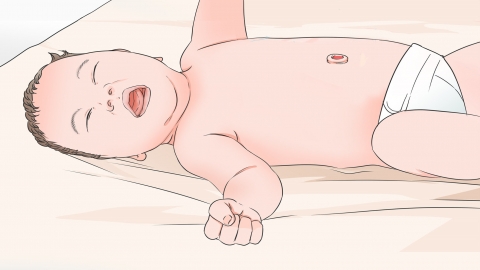What are the causes of low birth weight in newborns?
Generally, low birth weight in newborns may be caused by factors such as insufficient gestational age, fetal growth restriction, placental insufficiency, maternal gestational hypertension, or intrauterine fetal infection. If such conditions occur, it is recommended to seek timely examination and care at a reputable hospital. Detailed explanations are as follows:
1. Insufficient Gestational Age
Due to inadequate development time in the womb, preterm infants' organs and body tissues are not fully matured, resulting in lower weight compared with full-term infants. Preterm infants should be placed in an incubator to maintain suitable temperature and humidity, reducing heat loss. Scientific feeding, such as using formula milk specifically designed for preterm infants, should be conducted as directed by a physician to ensure adequate nutrient intake.
2. Fetal Growth Restriction
When the fetus itself has issues with growth and development, preventing normal weight gain, it can result in low birth weight. Under a physician's guidance, nutritional support via intravenous methods, such as compound amino acid injection, glucose injection, and fat emulsion injection, can be used to promote fetal growth. Fetal monitoring should also be enhanced to detect and manage any abnormalities promptly.

3. Placental Insufficiency
If the placenta cannot provide sufficient nutrients and oxygen to the fetus, fetal growth and development can be affected, leading to low birth weight. Pregnant women should undergo regular prenatal examinations and use ultrasound to monitor placental function and fetal development. Adequate rest and avoiding fatigue are important, along with consuming more protein- and vitamin-rich foods to improve placental function.
4. Gestational Hypertension
Elevated blood pressure in pregnant women can impair placental blood flow, reducing the nutrients reaching the fetus and resulting in low birth weight. Under medical guidance, antihypertensive medications such as labetalol tablets, nifedipine sustained-release tablets, and methyldopa tablets may be used to control blood pressure. A low-salt diet and regular blood pressure monitoring are also necessary to ensure adequate fetal nutrition.
5. Intrauterine Fetal Infection
If the fetus is infected by bacteria, viruses, or other pathogens in the womb, normal growth and development may be affected, leading to low birth weight. Under a physician's supervision, medications such as penicillin sodium injection, cefotaxime sodium injection, and azithromycin dry suspension may be used for treatment. Close monitoring of fetal heart rate and development is necessary during treatment.
In daily life, pregnant women should maintain healthy lifestyle habits, avoid exposure to harmful substances, and undergo regular prenatal checkups to identify and manage any factors affecting fetal growth promptly. If a newborn has low birth weight, proper scientific care should be provided under medical guidance.









